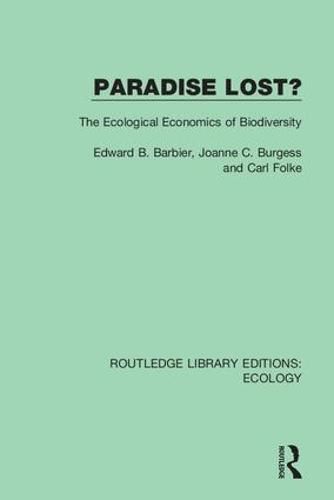Readings Newsletter
Become a Readings Member to make your shopping experience even easier.
Sign in or sign up for free!
You’re not far away from qualifying for FREE standard shipping within Australia
You’ve qualified for FREE standard shipping within Australia
The cart is loading…






Originally published in 1994, Paradise Lost? is the outcome of a unique collaboration between economists and ecologists initiated by the Beijer Institute of the Royal Swedish Academy of Sciences. The book examines how the loss of biodiversity is one of the most serious problems the world faces, and suggests that new, interdisciplinary thinking is required to safeguard both us and the biosphere from the effects of species extinction. The book examines how an integrated, interdisciplinary approach to the conservation of biodiversity can understand and tackle the issue. It provides an overview of the causes of the problem, and examines previous approaches to dealing with it. The book also addresses how the loss of biodiversity affects natural systems and provides an examination of environmental policy, while discussing how this has been affected by the ecological limits to economic activity. This book will be of interest to both academics and students of environmental sciences, economics and politics.
$9.00 standard shipping within Australia
FREE standard shipping within Australia for orders over $100.00
Express & International shipping calculated at checkout
Originally published in 1994, Paradise Lost? is the outcome of a unique collaboration between economists and ecologists initiated by the Beijer Institute of the Royal Swedish Academy of Sciences. The book examines how the loss of biodiversity is one of the most serious problems the world faces, and suggests that new, interdisciplinary thinking is required to safeguard both us and the biosphere from the effects of species extinction. The book examines how an integrated, interdisciplinary approach to the conservation of biodiversity can understand and tackle the issue. It provides an overview of the causes of the problem, and examines previous approaches to dealing with it. The book also addresses how the loss of biodiversity affects natural systems and provides an examination of environmental policy, while discussing how this has been affected by the ecological limits to economic activity. This book will be of interest to both academics and students of environmental sciences, economics and politics.